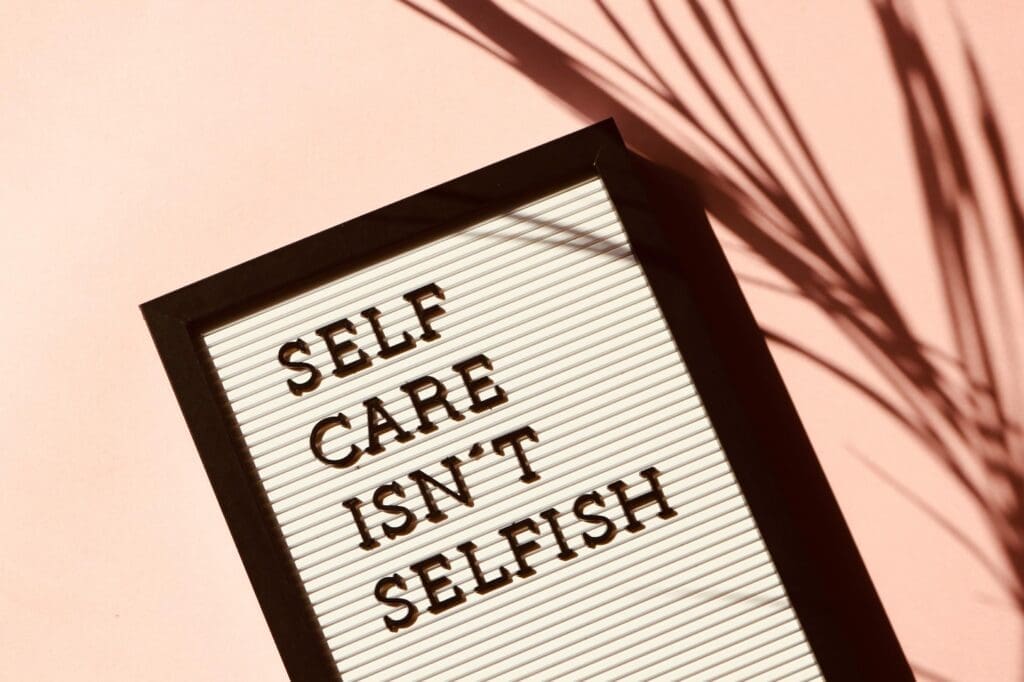In today’s society, the terms “self-love” and “self-care” are often used interchangeably. However, these two concepts serve different purposes in our journey toward well-being. Understanding the distinction between them and implementing both in your life, can lead to profound improvements in your mental health.
****
Defining Self-Love and Self-Care
Self-love is the foundation of our relationship with ourselves. It is about accepting who you are at your core, acknowledging your worth, and treating yourself with the same kindness you would offer a friend. Self-love involves recognizing your inherent values as a human being, forgiving yourself for mistakes, and speaking to yourself with compassion rather than criticism.
Self-care, on the other hand, encompasses the practical actions we take to maintain or improve our physical, mental, and emotional health. These are the tangible practices that support our well-being. While self-love is about mindset and inner dialogue, self-care manifests through behaviors and routines that promote health and reduce stress.
How to Cultivate Self-Love

Developing genuine self-love takes time and conscious effort. Start by becoming aware of your self-talk. When you make a mistake, do you berate yourself harshly, or do you respond with understanding? Challenge negative self-perceptions by asking whether you would speak to someone you care about in the same manner.
Set healthy boundaries in relationships. Recognizing when to say “no” to others’ demands reflects your self-respect and protects your energy. Practice self-forgiveness by acknowledging that perfection is imposing and that making mistakes is part of the human experience.
Consider keeping a gratitude journal focused on yourself. Regularly note qualities you appreciate about yourself or small wins you have achieved. This practice helps shift your focus from perceived flaws to your strengths and accomplishments.
Effective Self-Care Practices

Effective self-care is personalized and addresses multiple dimensions of wellness. Physical self-care might include adequate sleep, balanced nutrition, regular movement, and preventive healthcare. Mental self-care could involve setting aside time for activities that stimulate your intellect, such as reading, solving puzzles, or learning something new.
Emotional self-care practices help process and express feelings in healthy ways. This might mean journaling, speaking with a therapist, or engaging in creative outlets. Social self-care acknowledges our need for connection and might include scheduling regular time with supportive friends or joining communities with shared interests.
Remember that self-care is not always indulgent or pleasurable in the moment, sometimes it means doing difficult things that benefit your long-term well-being, like creating a budget, having a challenging conversation, or addressing a health concern.
Why You Need Both Self-Love and Self-Care in Your Life

Self-love without self-care can remain abstract and fail to materialize in meaningful ways. You might believe in your worth but neglect your basic needs. Conversely, self-care without self-love can become mechanical, such as following strict health regimens out of self-criticism rather than self-compassion.
When practiced together, self-love provides the foundation for self-care choices that serve you. Self-care becomes an expression of self-love rather than another obligation. This approach can help you create a sustainable relationship with yourself that can weather life’s inevitable challenges.
Both self-care and self-love reinforce each other in a virtuous way. Acts of self-care demonstrate to yourself that you are worthy of attention, which strengthens self-love. A foundation of self-love makes it easier to prioritize self-care consistently, even when external demands increase.
By cultivating both self-love and self-care, you build resilience against burnout, strengthen your capacity to serve others, and create a life aligned with your authentic needs and values.




